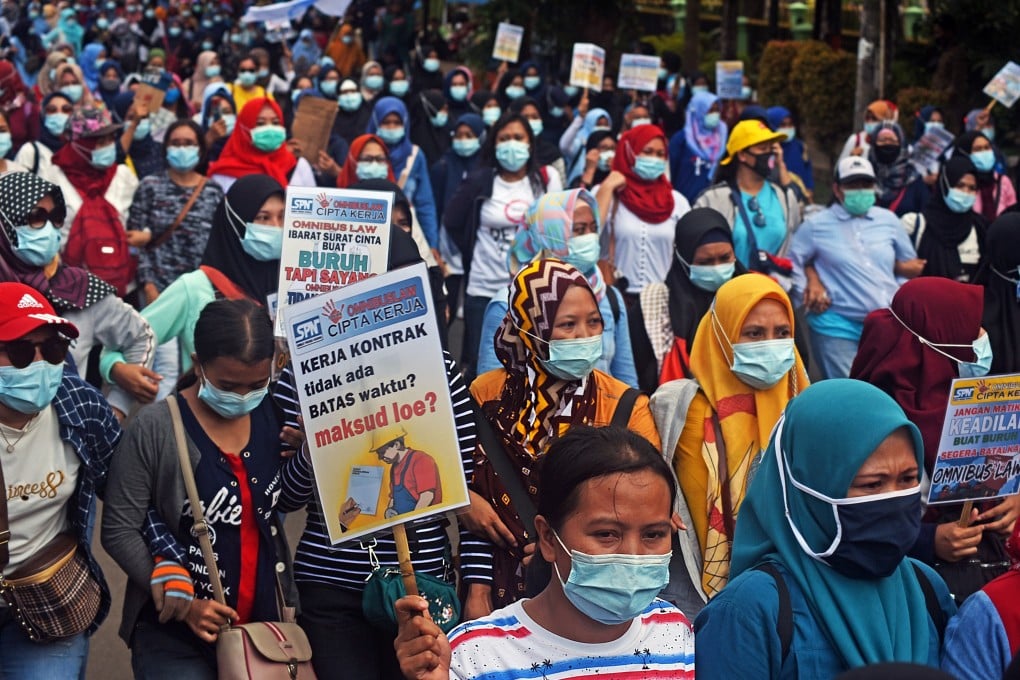Indonesia’s Omnibus Law protests show Jokowi can’t just focus on politics to rush reforms
- A bill seeking to ease rigid labour laws for jobs creation has sparked mass protests by the very people the Indonesian president is seeking to help
- The government discounted the depths of anxiety over jobs in a time of Covid-19 and failed in public communications

But unionised workers and those seeking formal jobs are among those who have demonstrated at their workplaces, genuinely worried that the law will disenfranchise them amid mounting unemployment. The Indonesian economy is on the cusp of a painful recession as it grapples with more than 340,000 coronavirus cases.
The so-called omnibus bill seeks to overhaul close to 80 laws to reduce red tape and rigidities that investors had long cited as deterrents to doing more business in Indonesia.
For example, the amount of severance pay borne by companies will be reduced from levels that analysts have described as unrealistically high (and the government said were usually not met based on their data), firms can state reasons for dismissals in contracts at the outset, and the formula for calculating annual increases to minimum wage has been made more flexible.
